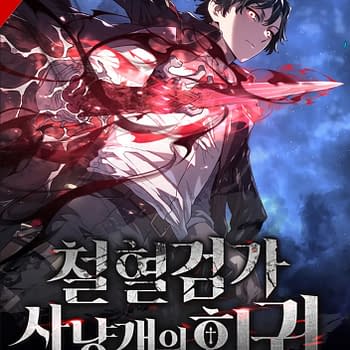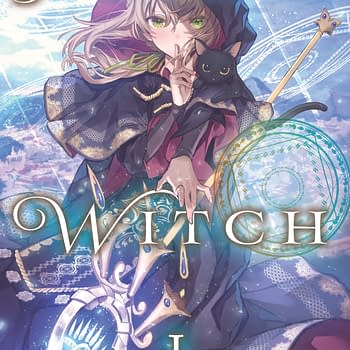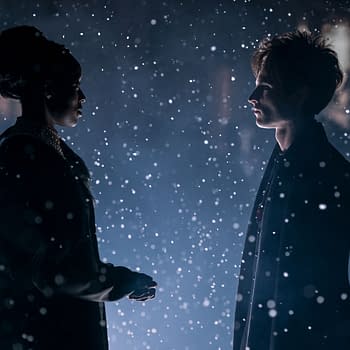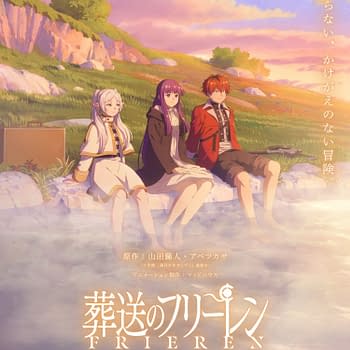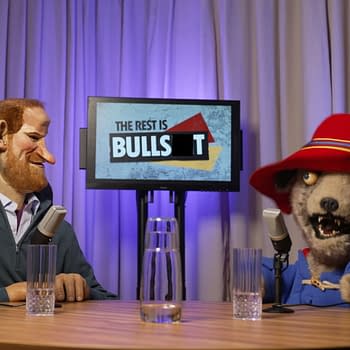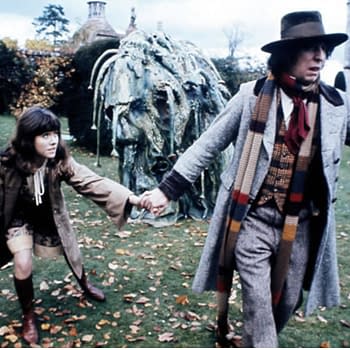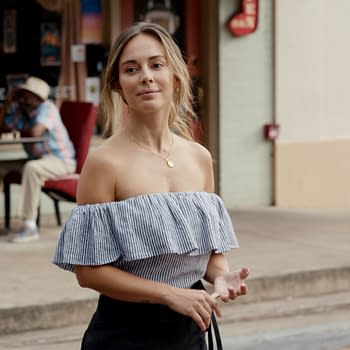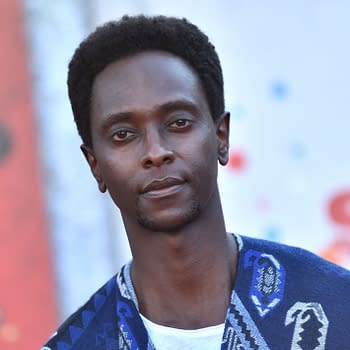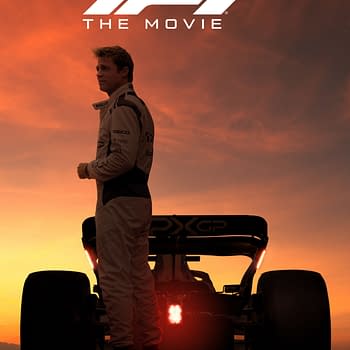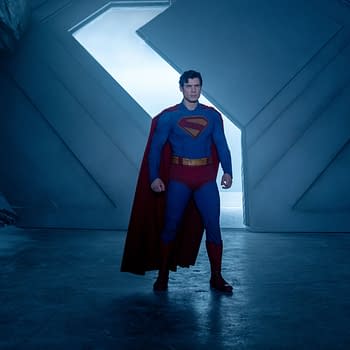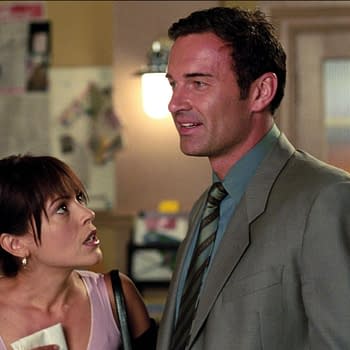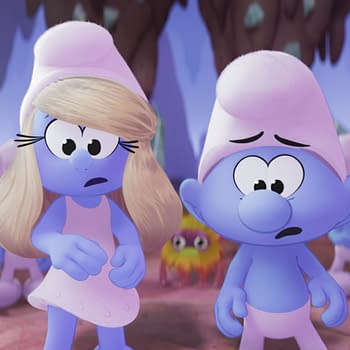Posted in: Movies | Tagged: adi tantimedh, amy hill, asian-american movies, bee vang, comisery, digital films, facebook, harrison xu, indie movies, jennifer field, margin films, nat ho, quentin lee, Richard Anderson, science fiction, sheetal sheth, streaming, time travel, verton r. banks
Comisery Week – Zoom Filmmaking in the Pandemic
Full disclosure: when I'm not writing for Bleeding Cool, I work in Film and Television as a screenwriter and filmmaker. The editors of Bleeding Cool have kindly let me post a series of articles and interviews this week to promote the September 1st release of my movie Comisery on asianamericanmovies.com and Amazon Video VOD.
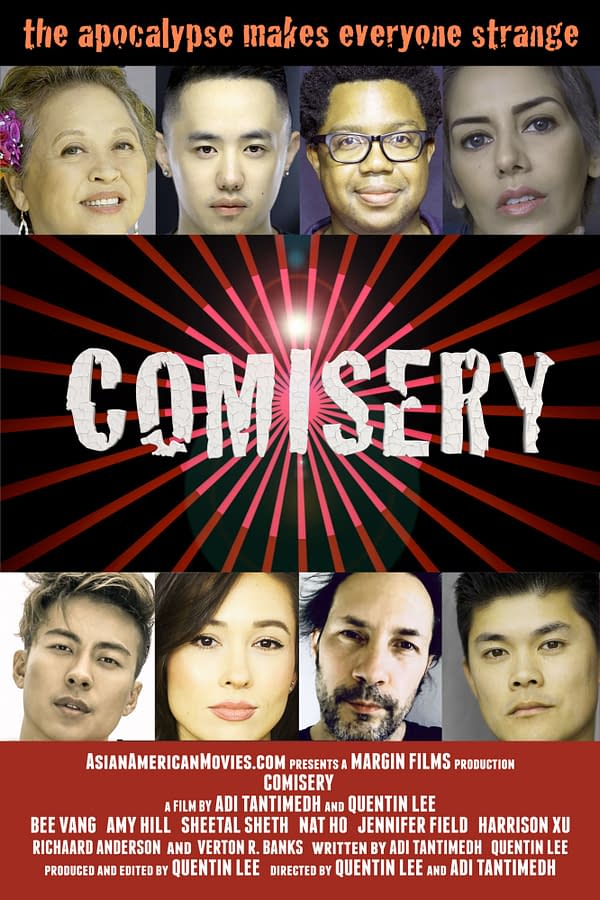
When New York and California were in full Lockdown, my friend Quentin Lee and I shot an 8-part webseries on zoom from late-May all the way to Mid-July. It stars Bee Vang, Harrison Xu, Amy Hill, Jennifer Field, Sheetal Sheth, Nat Ho, Richard Anderson, and Verton R. Banks. I was the co-creator, screenwriter and co-director with Quentin. We made it with literally no budget and released each episode days after we filmed. It was just the actors and us in front of our computers. Quentin and I were a crew of two – he was producer, co-director, sound recordist, and editor. We were also a writer's room of two, discussing what would happen to the characters and adapting to what was happening in real life like racism, Black Lives Matter, and deciding how to incorporate them into the story in real-time. The result is Comisery.
Comisery is an Asian-American Science Fiction Screwball Comedy about a group of friends living through the pandemic who are suddenly confronted with an alien invasion in the form of a virus from the future. Time travel, Quantum Physics, would-be hitmen, and sheer chaos ensue. They're all stuck at home and have to figure out what the hell is really going on and whether they can do anything to stop this new infection and save the world… while not being able to leave the house.
Comisery and the Art of Zoom Filmmaking
Shooting talking heads on zoom is a new form of filmmaking that could only have happened during this pandemic. There are no hard and fast rules for it. Many other productions, most of them British, have borne fruit in this new aesthetic. The hit BBC sitcom Staged starring David Tennant and Michael Sheen as actors in furlough trying to rehearse a play while in lockdown is probably the most successful example of this new narrative form. The other successful example is director Rob Savage's horror movie Host, which was produced by Shudder. He had a budget to afford a stunt team, a VFX team, and a pyrotechnics team who all made their segments in isolation, and Savage edited their work into the movie to look like things were happening in the actors' houses. The trick is to keep viewers from getting bored, just looking at talking heads talking to each other on-screen. You needed an interesting script, compelling performances, and some degree of flavour or movement to keep your audience's attention. Trying to perform an Arthur Miller play on zoom for a general audience does not work. Most filmmakers would not work with so many restrictions on zoom if given a choice. We're stuck at home, so we have to figure out how to work with what we have.
Shooting a TV show or movie on zoom is an interesting exercise in discovering what you're made of as a filmmaker. Do you have enough content when you don't have a camera crew, crane, fancy effects, or bells and whistles of a large-scale production infrastructure? In a way, it's a return to zero-degree filmmaking: it's just you and the actors in front of cameras. The actors don't get to be in the same physical space with each other. They don't even get to see each other's body language and gestures. They're forced to observe each other's faces and listen to the dialogue and react. It can be a huge readjustment to how they're used to working. The closest analogy for me is recording an audio play, which I had experienced back when I wrote radio, plays for the BBC in London.
After we finished serializing Comisery on Facebook and it got over 135,000 views, Quentin took the eight episodes off Facebook and edited them into a 75-minute movie with a framing prologue and epilogue that I wrote for the movie version. It was time to push the movie version. It's not free anymore, alas.
Tomorrow, we'll be running a conversation with producer and co-director Quentin Lee for Comisery Week.



